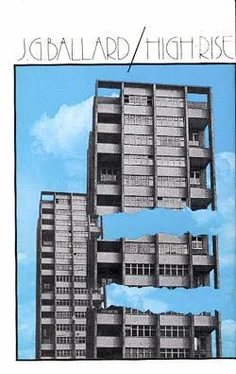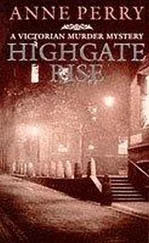J. Ballard - High Rise
Здесь есть возможность читать онлайн «J. Ballard - High Rise» весь текст электронной книги совершенно бесплатно (целиком полную версию без сокращений). В некоторых случаях можно слушать аудио, скачать через торрент в формате fb2 и присутствует краткое содержание. Жанр: Современная проза, на английском языке. Описание произведения, (предисловие) а так же отзывы посетителей доступны на портале библиотеки ЛибКат.
- Название:High Rise
- Автор:
- Жанр:
- Год:неизвестен
- ISBN:нет данных
- Рейтинг книги:3 / 5. Голосов: 1
-
Избранное:Добавить в избранное
- Отзывы:
-
Ваша оценка:
High Rise: краткое содержание, описание и аннотация
Предлагаем к чтению аннотацию, описание, краткое содержание или предисловие (зависит от того, что написал сам автор книги «High Rise»). Если вы не нашли необходимую информацию о книге — напишите в комментариях, мы постараемся отыскать её.
"High Rise" centers around four major characters: Dr. Robert Laing, an instructor at a local medical school, Richard Wilder, a television documentary producer, Anthony Royal, an architect, and the high rise building all three live in with 2,000 other people. Throughout the story, Ballard switches back and forth between these three people, recording their thoughts and actions as they live their lives in the new high-rise apartment building. Ballard made sure to pick three separate people living on different floors of the forty floor building: Laing lives on the twenty fifth floor, Wilder lives on the second floor, and Royal lives in a penthouse on the fortieth floor (befitting his status as the designer of the building). Where you live in this structure will soon take on an importance beyond life itself.
At the beginning of the story, most of the people living in the building get along quite well. There are the usual nitpicky problems one would expect when 2,000 people are jammed together, but overall people move freely from the top to the bottom floors. A person living on the bottom floors can easily go to the observation deck on the top of the building to enjoy the view, or shop at the two banks of stores on the tenth and thirty-fifth floors. Children swim and play in the pools and playgrounds throughout the high rise without any interference. Despite the fact that well to do people live in the building, with celebrities and executives on the top floors, middle-class people on the middle floors, and airline pilots and the like on the bottom ten floors, everyone gets along reasonably well-at first.
Then things change. The gossip level increases among the residents, and parties held on different floors start to exclude people from other areas. In quick succession, objects start to land on balconies, dropped by residents on higher levels. Equipment failures, such as electrical outages, lead to mild assaults between residents. Cars parked close to the building are vandalized, and a jeweler living on the fortieth floor does a swan dive out of the window. Every incident leads to further acts of violence and increasing chaos in the lives of those in the building. People begin to take a greater interest in what's going on where they live than in outside activities and jobs. As the violence escalates, elevators and lobbies on each floor turn into armed camps as the residents attempt to block any encroachments on their territory. What starts out as a book about living in a technological marvel quickly morphs into a study of how technology can cause human beings to regress back into primitivism. Moreover, Ballard tries to draw a correlation between the technology of the building and this descent into a Stone Age mentality. He shows in detail how the residents of the apartments sink back into the morass, passing through a classical Marxist structure of bourgeoisie-proletariat, moving on to a clan/tribal system, to a system of stark individuality. In short, Ballard tries to equate our striving towards individuality through technology with how we started out in our evolution as hunter-gatherers, as individuals seeking individual gains. The promise that technology will liberate the individual is not the highest form of evolution, argues Ballard, but is actually a return to the lowest forms of human expression.
Within a few pages of the story, I thought this might turn out to be very similar to a Bentley Little book. Little, nominally a horror writer but often a social satirist, often takes a situation like this and shows how people collapse under the pressures of modern life. My belief was not born out, however, not because Ballard doesn't take certain situations over the top but because he imbues his work with a significant philosophical subtext that Little would never write about. Bentley Little is all about focusing on the over the top, outrageous incidents of humanity's decline, whereas Ballard is more interested in serving as a preacher on anti-humanistic technology, thundering out a jeremiad concerning where we might go if we do not take the time to think very carefully about the society we wish to create.
"High Rise" is a dark, forbidding tale of woe that is sure to get a reaction from anyone who reads it. There seem to be few out there who can deliver such devastating blows to our love of technology as Ballard does in his works. This author is often referred to as a science fiction writer, but "High Rise" works just as well on a horror level. So does "Crash," when I think about it, although the cold, detached prose of that book is not present in "High Rise." Whatever genre Ballard falls into, this book delivers on every level.












